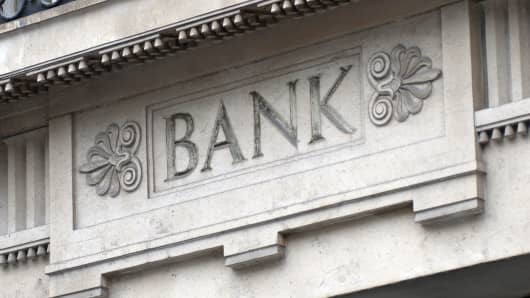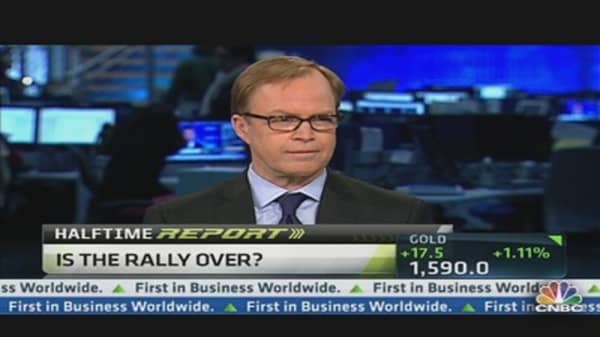A slowdown in lending is sending warning signs about bank earnings as the biggest names in the business get set to reveal their quarterly profits and expectations for the future.
Though big-bank stocks have gained about 9 percent this year and served as leadership during the first-quarter market rally, they've trailed over the past month, with the KBW Bank Index losing nearly 3 percent.
A note out Tuesday from Goldman Sachs helps explain some of the group's problems and throws up a warning signal: Banks that gain more than 10 percent in the first quarter historically have given nearly all those profits back when future earnings estimates begin falling as well.
Goldman took down earnings forecasts for some of the industry's biggest players, cutting Morgan Stanley by 17 percent, Bank of America by 15 percent and dropping Citigroup, which it actually says it still likes, by 13 percent.
(Read More: Earnings Season Kicks Off, Slow Growth Expected)
"The past few years have shown that bank stocks gain over 10 percent in 1Q only to lose 9 percent in 2Q when out-year estimates start to decline," Goldman said. "With 1Q earnings likely to be weak, we see the risk that history repeats itself with the start of another negative (earnings) revision cycle."
There are three primary culprits for the bank slide: Loan growth contracting 2 percent for the quarter after growing 3 percent in the fourth quarter; slower activity in capital markets including a March dropoff in mergers and acquisitions as well as initial public offerings, and declining confidence in the economy.





